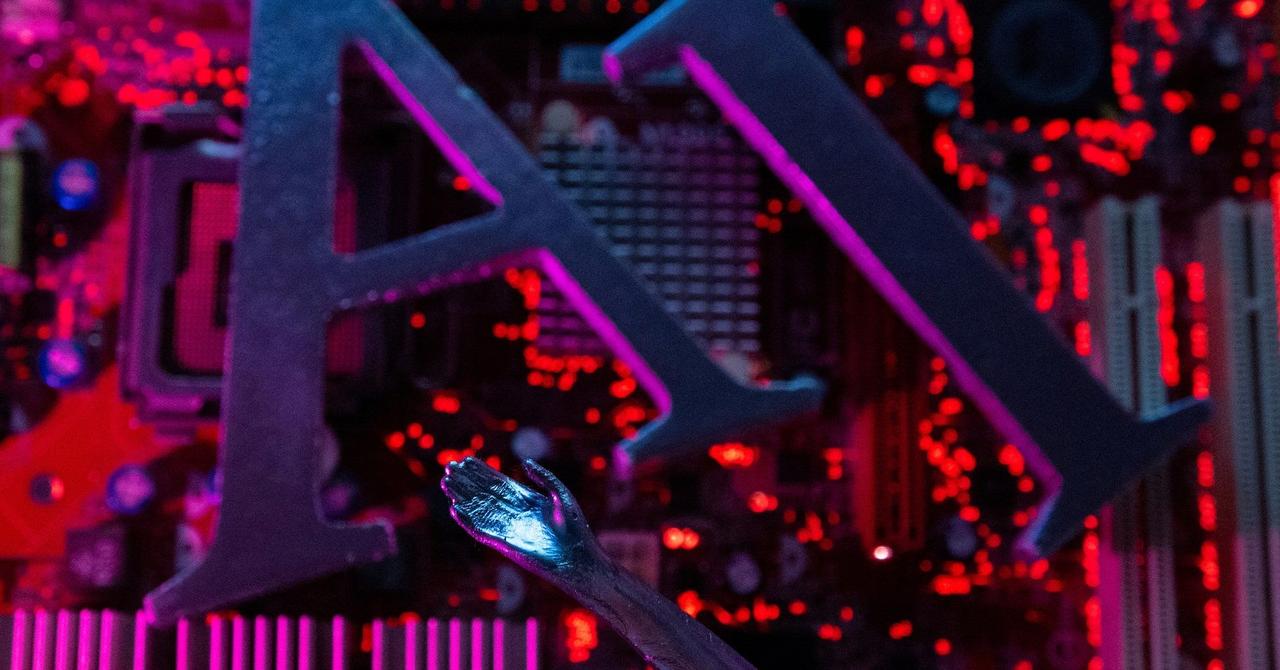Harvey AI in Talks to Raise $250M at $5B Valuation, Signaling Rapid Growth in Legal Tech
3 Sources
3 Sources
[1]
Harvey reportedly in discussions to raise $250M at $5B valuation | TechCrunch
Legal tech startup Harvey is in discussions to raise more than $250 million in a funding round led by Kleiner Perkins and Coatue that would value it at $5 billion, Reuters reported, citing anonymous sources. Sequoia Capital, which led the startup's $300 million Series D just three months ago, is also expected to invest in this new round, Reuters reported, adding that investors are mostly drawn to the startup's quick traction in the market. Harvey has enjoyed fast growth as lawyers and legal firms around the world find ways to use generative AI tech to simplify research, documentation, and quickly examine their data. The company recorded annualized run-rate revenue of $75 million in April, Reuters reported. The news comes just a couple days after Harvey said it would start using AI models from Anthropic and Google, adding to the models it uses from its backer, OpenAI. The report did not mention if the Open AI Startup Fund, which backed Harvey early in its life, would also invest in this round. Harvey, Coatue, Sequoia, and Kleiner Perkins did not immediately return requests for comment.
[2]
Exclusive: Legal startup Harvey AI in talks to raise funding at $5 billion valuation
May 14 - Harvey AI, a fast-growing legal startup, is in advanced talks to raise over $250 million in a new round of funding at a valuation of $5 billion, sources familiar with the matter told Reuters. The funding round, led by venture capital firms Kleiner Perkins and Coatue, would mark a significant leap in Harvey's valuation from $3 billion in just a few months. Sequoia Capital, an existing backer, is also expected to increase its investment in this round. Investor interest in Harvey is driven by the company's revenue growth, according to people with knowledge of the company's numbers. Its annualized run rate reached $75 million in April, up from $50 million earlier this year. This 50% increase in a matter of months has been fueled by strategic partnerships with major consulting firms like PwC as well as direct sales to large corporations for in-house general counsel use, said the sources, who requested anonymity to discuss private information. Harvey, Coatue and Sequoia did not respond to requests for comment. Kleiner Perkins declined to comment. Harvey, founded in 2022, has become one of the most high-profile legal startups in the age of generative AI. The company uses AI models and machine-learning algorithms to assist lawyers and legal professionals in various tasks, including document review, contract drafting and legal research. It has focused on selling to elite law firms and the biggest corporations, and building specific modules for tasks such as M&A compliance. The startup, which began by partnering with OpenAI to build a custom-trained model for legal professionals, announced this week that it expanded its offerings by adding foundation models from Anthropic and Google to its platform. The round, once finalized, would mark a doubling down in Harvey for Kleiner Perkins, which co-led Harvey's $80 million Series B in December 2023. The adoption of AI technology has fueled surging interest from venture capital investors in the legal sector, which used to be overlooked by VCs for not having a growing addressable market and being dominated by a handful of big players. In 2024, global investments in legal technology startups reached $2.1 billion, according to data from Crunchbase. The enthusiasm has grown, with February 2025 seeing one of the highest investment totals in U.S. legal tech history. This surge in funding reflects the increasing adoption of AI and other advanced technologies in the legal industry, as firms seek to improve efficiency, reduce costs and enhance the quality of their services in an increasingly competitive market. Goldman Sachs analysts estimated last year that about 44% of legal work could eventually be automated. Reporting by Krystal Hu in New York and Anna Tong in San Francisco; Editing by Mark Porter Our Standards: The Thomson Reuters Trust Principles., opens new tab Suggested Topics:Artificial Intelligence Anna Tong Thomson Reuters Anna Tong is a correspondent for Reuters based in San Francisco, where she reports on the technology industry. She joined Reuters in 2023 after working at the San Francisco Standard as a data editor. Tong previously worked at technology startups as a product manager and at Google where she worked in user insights and helped run a call center. Tong graduated from Harvard University. Krystal Hu Thomson Reuters Krystal reports on venture capital and startups for Reuters. She covers Silicon Valley and beyond through the lens of money and characters, with a focus on growth-stage startups, tech investments and AI. She has previously covered M&A for Reuters, breaking stories on Trump's SPAC and Elon Musk's Twitter financing. Previously, she reported on Amazon for Yahoo Finance, and her investigation of the company's retail practice was cited by lawmakers in Congress. Krystal started a career in journalism by writing about tech and politics in China. She has a master's degree from New York University, and enjoys a scoop of Matcha ice cream as much as getting a scoop at work.
[3]
Exclusive-Legal startup Harvey AI in talks to raise funding at $5 billion valuation
-Harvey AI, a fast-growing legal startup, is in advanced talks to raise over $250 million in a new round of funding at a valuation of $5 billion, sources familiar with the matter told Reuters. The funding round, led by venture capital firms Kleiner Perkins and Coatue, would mark a significant leap in Harvey's valuation from $3 billion in just a few months. Sequoia Capital, an existing backer, is also expected to increase its investment in this round. Investor interest in Harvey is driven by the company's revenue growth, according to people with knowledge of the company's numbers. Its annualized run rate reached $75 million in April, up from $50 million earlier this year. This 50% increase in a matter of months has been fueled by strategic partnerships with major consulting firms like PwC as well as direct sales to large corporations for in-house general counsel use, said the sources, who requested anonymity to discuss private information. Harvey, Coatue and Sequoia did not respond to requests for comment. Kleiner Perkins declined to comment. Harvey, founded in 2022, has become one of the most high-profile legal startups in the age of generative AI. The company uses AI models and machine-learning algorithms to assist lawyers and legal professionals in various tasks, including document review, contract drafting and legal research. It has focused on selling to elite law firms and the biggest corporations, and building specific modules for tasks such as M&A compliance. The startup, which began by partnering with OpenAI to build a custom-trained model for legal professionals, announced this week that it expanded its offerings by adding foundation models from Anthropic and Google to its platform. The round, once finalized, would mark a doubling down in Harvey for Kleiner Perkins, which co-led Harvey's $80 million Series B in December 2023. The adoption of AI technology has fueled surging interest from venture capital investors in the legal sector, which used to be overlooked by VCs for not having a growing addressable market and being dominated by a handful of big players. In 2024, global investments in legal technology startups reached $2.1 billion, according to data from Crunchbase. The enthusiasm has grown, with February 2025 seeing one of the highest investment totals in U.S. legal tech history. This surge in funding reflects the increasing adoption of AI and other advanced technologies in the legal industry, as firms seek to improve efficiency, reduce costs and enhance the quality of their services in an increasingly competitive market. Goldman Sachs analysts estimated last year that about 44% of legal work could eventually be automated. (Reporting by Krystal Hu in New York and Anna Tong in San Francisco; Editing by Mark Porter)
Share
Share
Copy Link
Legal tech startup Harvey AI is reportedly in advanced discussions to raise over $250 million in a new funding round, potentially valuing the company at $5 billion. This significant increase in valuation highlights the growing interest in AI-powered legal solutions.

Harvey AI's Meteoric Rise in Legal Tech
Harvey AI, a rapidly growing legal tech startup founded in 2022, is reportedly in advanced talks to secure a substantial funding round that could significantly boost its valuation. The company is discussing raising over $250 million in a new round led by venture capital firms Kleiner Perkins and Coatue, potentially valuing the startup at $5 billion
1
2
. This marks a remarkable increase from its previous $3 billion valuation just a few months ago.Impressive Revenue Growth and Strategic Partnerships
The investor interest in Harvey AI is primarily driven by the company's exceptional revenue growth. According to sources familiar with the company's financials, Harvey AI's annualized run rate reached $75 million in April, up from $50 million earlier this year – a 50% increase in a matter of months
2
. This growth has been fueled by strategic partnerships with major consulting firms like PwC and direct sales to large corporations for in-house general counsel use.AI-Powered Legal Solutions
Harvey AI has positioned itself as a leader in the generative AI space for legal professionals. The company utilizes AI models and machine-learning algorithms to assist lawyers and legal professionals in various tasks, including:
- Document review
- Contract drafting
- Legal research
- M&A compliance
Initially partnering with OpenAI to build a custom-trained model for legal professionals, Harvey AI recently announced the expansion of its offerings by adding foundation models from Anthropic and Google to its platform
1
3
.Related Stories
Venture Capital Interest in Legal Tech
The potential funding round for Harvey AI reflects a broader trend of increasing venture capital interest in the legal tech sector. In 2024, global investments in legal technology startups reached $2.1 billion, with February 2025 seeing one of the highest investment totals in U.S. legal tech history
2
. This surge in funding underscores the growing adoption of AI and advanced technologies in the legal industry, as firms seek to improve efficiency, reduce costs, and enhance service quality.Market Potential and Future Outlook
The legal tech market's potential is significant, with Goldman Sachs analysts estimating that approximately 44% of legal work could eventually be automated
2
. This presents a substantial opportunity for companies like Harvey AI to revolutionize the legal industry through AI-powered solutions.As Harvey AI continues to grow and attract investment, it is poised to play a crucial role in shaping the future of legal services. The company's focus on elite law firms and large corporations, combined with its expanding AI capabilities, positions it well to capitalize on the increasing demand for efficient and innovative legal tech solutions.
References
Summarized by
Navi
Related Stories
Harvey AI Secures $300M Funding, Reaching $5B Valuation in Legal Tech Boom
24 Jun 2025•Business and Economy

Legal AI Startup Harvey Poised for $300M Funding Round, Doubling Valuation to $3B
17 Jan 2025•Startups

Legal AI startup Harvey hits $8 billion valuation with $160 million raise led by Andreessen Horowitz
04 Dec 2025•Startups

Recent Highlights
1
Google Gemini 3.1 Pro doubles reasoning score, beats rivals in key AI benchmarks
Technology

2
Nvidia and Meta forge massive chip deal as computing power demands reshape AI infrastructure
Technology

3
ChatGPT cracks decades-old gluon amplitude puzzle, marking AI's first major theoretical physics win
Science and Research





